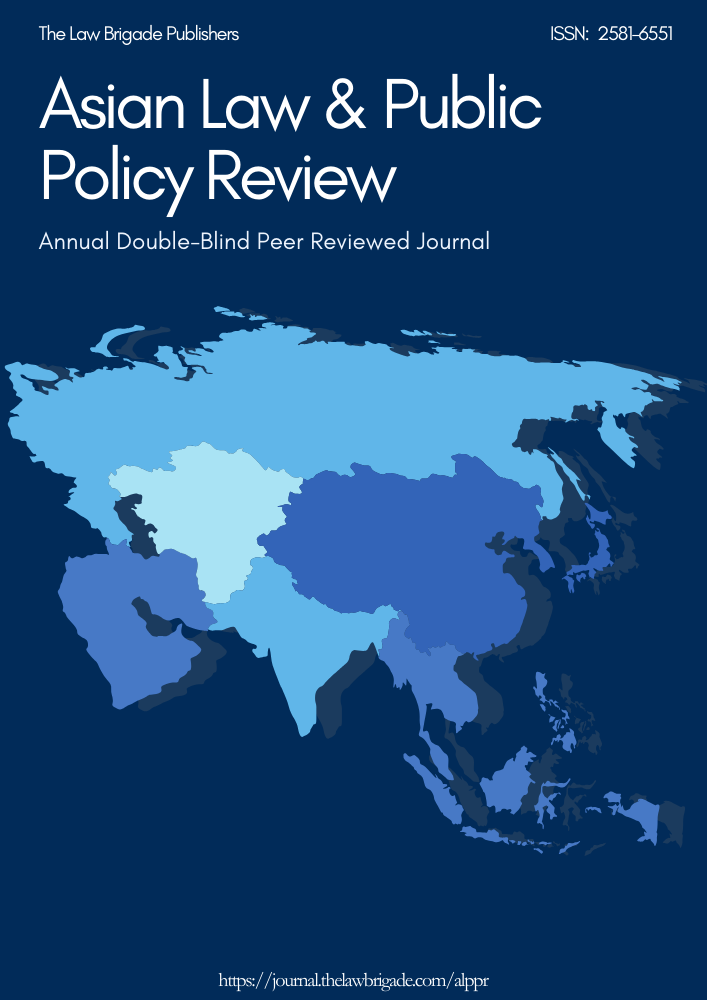Recognising Environmental Rights As Third Generation Right: With Specific Reference To South Asia & India
Keywords:
ENVIRONMENTAL RIGHTS, Earth, social environmentAbstract
"God Created the Heaven like Earth, But We Men Turn It into Hell through Our Deeds”
Man is both creature and destroyer of his surrounding conditions, which gives him physical food and affords him the opportunity for thinking-related, moral, social and physical growth. In the long and winding change for the better of the human race on this planet a stage has been reached when, through the fast increasing speed of science and technology, man has received the power to change his physical, mental and social environment in huge numbers of ways and on a never-before-seen scale. Both parts of man's the natural and the manmade, are extremely important to his well-being and to the enjoyment of basic human rights, the right to life itself.1 It is pretty difficult to have an open and honest view of the third generation rights. Generally, all of the rights under discussion are very wide in range. “They do not set out clearly stated particular measures and steps to be taken by nations or governments, but clearly states complete and thorough goals. “As pointed in the Right to Development, development means a situation permitting everyone to enjoy to their full extent 'all' rights and freedoms. So, development has variety of parts and makes up an ideal situation that rests on a large number of true and legal elements many of which are not under the control of governments alone.
Downloads
Downloads
Published
Issue
Section
License

This work is licensed under a Creative Commons Attribution-NonCommercial-ShareAlike 4.0 International License.
License Terms
Ownership and Licensing:
Authors of research papers submitted to any journal published by The Law Brigade Publishers retain the copyright of their work while granting the journal specific rights. Authors maintain ownership of the copyright and grant the journal the right of first publication. Simultaneously, authors agree to license their research papers under the Creative Commons Attribution-ShareAlike 4.0 International (CC BY-SA 4.0) License.
License Permissions:
Under the CC BY-SA 4.0 License, others are permitted to share and adapt the work, even for commercial purposes, provided that appropriate attribution is given to the authors, and acknowledgment is made of the initial publication by The Law Brigade Publishers. This license encourages the broad dissemination and reuse of research papers while ensuring that the original work is properly credited.
Additional Distribution Arrangements:
Authors are free to enter into separate, non-exclusive contractual arrangements for distributing the published version of the work (e.g., posting it to institutional repositories or publishing it in books), provided that the original publication by The Law Brigade Publishers is acknowledged.
Online Posting:
Authors are encouraged to share their work online (e.g., in institutional repositories or on personal websites) both prior to submission and after publication. This practice can facilitate productive exchanges and increase the visibility and citation of the work.
Responsibility and Liability:
Authors are responsible for ensuring that their submitted research papers do not infringe on the copyright, privacy, or other rights of third parties. The Law Brigade Publishers disclaims any liability for any copyright infringement or violation of third-party rights within the submitted research papers.


